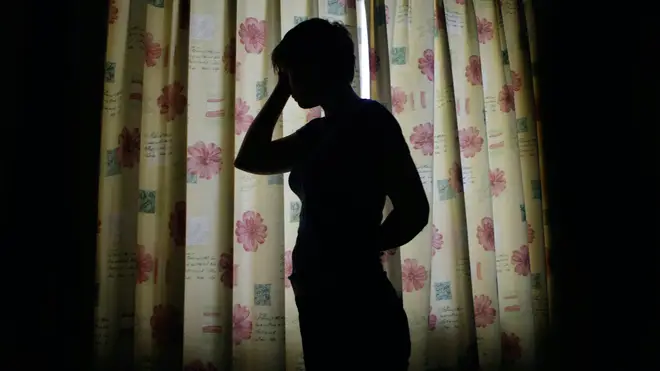
Clive Bull 1am - 4am
25 May 2021, 09:20 | Updated: 25 May 2021, 09:26

Mental health services for children and young people are at breaking point with the coronavirus pandemic adding huge strain to the system, according to a new poll.
NHS trust leaders said increased complexity of cases due to the pandemic was the main reason for the high workload, with additional demand due to the Covid-19 pandemic and a lack of care in the community also adding to it.
The next significant reasons included not enough patient beds and not enough staff.
READ MORE: LBC investigation: Children's mental health support plummets during pandemic
READ MORE: Covid-19 raises risk of dementia and depression, study suggests
A survey of 35 NHS trust leaders in England found most units were struggling with demand, while young people are also turning up at A&E having self-harmed or experiencing suicidal thoughts.
All mental health trust leaders said the demand their trust or local system is experiencing has increased in the last six months, with 80% saying that increase was significant and 20% saying it was moderate.
Meanwhile, 85% of trust leaders, who together oversee about 60% of children and young people's mental health services, said they could not meet demand for children and young people's eating disorder services - the highest result for any service.
Two-thirds could not meet demand for community Child and Adolescent Mental Health Services (CAMHS, 66%) and inpatient CAMHS services (65%).
The survey, carried out by NHS Providers, found rising numbers of children and young people at A&E with mental health problems, with one trust leader saying they had seen an increase of up to 50%.
In total, 84% of trust leaders said the amount of time children and young people are currently having to wait to access treatment for services is significantly (29%) or moderately (59%) increasing compared to waiting times six months ago.
Meanwhile, 61% of trust leaders disagreed (29%) or strongly disagreed (32%) with the statement: 'There are enough inpatient mental health beds for children and young people in my trust/local area.'

Nick Ferrari challenges Coffey over unknown Covid guidance change
One chief executive of a combined mental health, learning disability and community trust, said: "[The] latest data shows a 72% increase over [the] usual level of CAMHS referrals.
"[It is the] biggest increase since schools resumed. Most alarming is the increase in first presentation with very acute symptoms: anxiety, suicidality and self-harm."
Deputy chief executive of NHS Providers, Saffron Cordery, said: "Covid-19 has clearly had a big impact on children's lives and their mental health.
"As the NHS focuses on recovery from the pandemic, we must recognise the extent of its impact on mental health services and ensure they also get the focus and attention they need.
"Despite welcome support and improved funding for some mental health services over recent years, the pandemic has brought into sharp focus the impact of rising demand and chronic underinvestment in beds, workforce and capital. We are now into a time of reckoning."
Claire Murdoch, NHS England's national mental health director, said: "The pandemic has turned lives upside down, hitting young people particularly hard and in some areas, staff are now treating more children and young people than ever before - the NHS has responded rapidly to the increased demand with a wide range of services available for those who need help, including through 183 mental health support teams working with schools across the country."